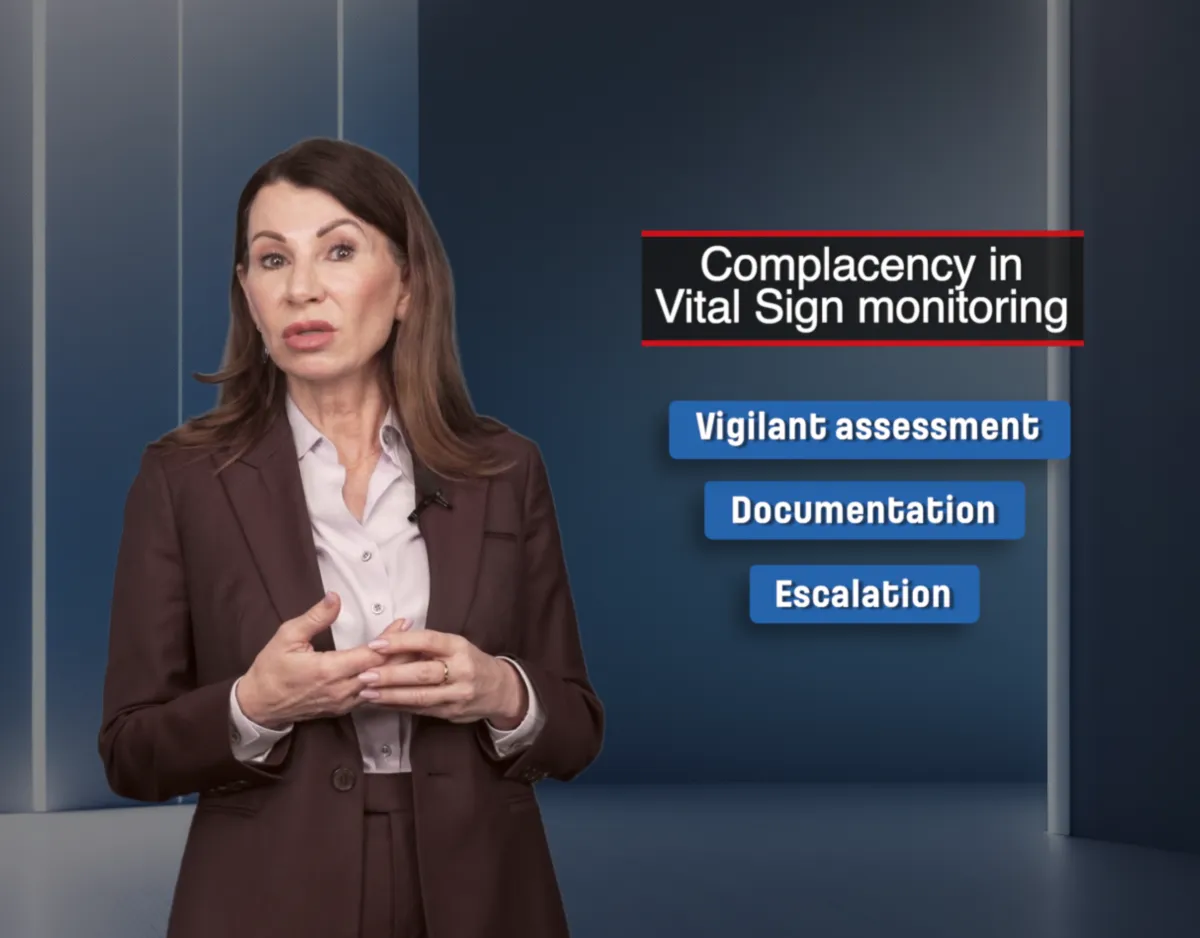Empowering Healthcare Professionals
Through Expert-Led Training
Evidence-based courses to improve
patient safety and prevent harm.
Empowering Healthcare Professionals
Through Expert-Led Training
Evidence-based courses to improve
patient safety and prevent harm.
Empowering Healthcare Professionals
Through Expert-Led Training
Evidence-based courses to improve
patient safety and prevent harm.
LifebeatSolutions – Your Partner in Patient Safety
Lifebeat Solutions provides healthcare professionals with self-paced, expert-led courses that deliver real-world strategies for safer patient care.
What is LifeBeat Solutions?
Lifebeat Solutions is a results-driven training platform designed to equip healthcare professionals with the tools and education needed to reduce preventable harm and improve patient safety.
Expert-Led Courses:
Learn from Dr. Julie Siemers who has decades of experience in patient safety.
Real-World Application:
Implement evidence-based strategies that drive measurable improvements.
Proven Outcomes:
Reduce medical errors, enhance patient advocacy, and strengthen healthcare systems.
"By identifying a critical gap in nursing knowledge Julie Siemers has developed
an innovative solution with significant potential to improve patient safety.”
Demanding Medical Excellence: Doctors and Accountability in the Information Age . President, Health Quality Advisors.
"By Nurses are our most formidable line of defense against patient harm. Julie Siemers' coursework should be required for new and ongoing employment. Lives will be saved!”
Helen Haskell
Mother of Lewis Blackman, President,
Mothers Against Medical Error.
How Not to Die
in the Hospital
A Personal Mission
Dr. Julie’s passion for patient safety stems from personal experiences and decades of frontline healthcare work. She witnessed firsthand how small oversights in care can lead to life-altering consequences, inspiring her mission to educate, advocate, and empower. Her goal? To help hospitals reduce preventable harm and equip patients with the confidence to navigate their healthcare journey effectively.
CONSULTING
Personalized Consulting Solutions
Flexible, tiered consulting solutions designed to reduce patient harm, improve safety culture, and optimize healthcare outcomes.
How Consulting Works
• Initial Assessment & Roadmap – A deep dive into your hospital’s current safety practices to identify gaps and opportunities for improvement.
• Custom Training & Implementation – Hands-on support to implement safety protocols, backed by industry best practices.
• Ongoing Evaluation & Support – Continuous improvement strategies to ensure long-term success in patient safety.
Key Consulting Services
• Foundational Patient Safety Training – Essential workshops to build a culture of safety.
• Advanced Process Improvement – In-depth strategies for risk management and patient engagement.
• Family & Patient Partnership Programs – Empowering patients to take an active role in their care.
Who Can Benefit
• Hospitals & Healthcare Organizations – Looking to enhance safety protocols and compliance.
• Healthcare Leaders – Wanting expert guidance to drive meaningful change.
LIFEBEAT SOLUTIONS
The Complete Patient Safety
Training Platform
Lifebeat Solutions delivers structured, evidence-based education designed to reduce medical errors, enhance patient care, and empower healthcare teams with the tools they need to create safer clinical environments.
What We Offer
• Online Patient Safety Courses – Self-paced modules to educate healthcare providers.
• Professional Training Programs – Courses for healthcare teams to enhance their knowledge.
• Custom Safety Solutions – Tailored programs for healthcare organizations.
Why Lifebeat Solutions Works
• Proven Expertise – Developed by leading healthcare professionals.
• Actionable Insights – Practical steps providers can implement to ensure positive patient outcomes.
• Ongoing Support – Tools and resources for continued learning and improvement.
Who It’s For
• Healthcare Organizations – Teams aiming to educate and empower their staff.
• Educational Institutions – Integrating patient safety into curriculum.
SPEAKING
Inspiring Healthcare Change Through Thought Leadership
Engaging keynote speeches and workshops to inspire and educate healthcare professionals to create safer healthcare systems.
"By identifying a critical gap in nursing knowledge Julie Siemers has developed
an innovative solution with significant potential to improve patient safety.”
Michael L. Millenson, Author,
Demanding Medical Excellence: Doctors and Accountability in the Information Age. President, Health Quality DividerAdvisors.
"Nurses are our most formidable line of defense against patient harm. Julie Siemers' coursework should be required for new and ongoing employment. Lives will be saved!" Helen Haskell, mother of Lewis Blackman, President, Mothers Against Medical Error.”
Helen Haskell
Mother of Lewis Blackman, President, Mothers Against Medical Error.
"By identifying a critical gap in nursing knowledge Julie Siemers has developed
an innovative solution with significant potential to improve patient safety.”
Michael L. Millenson, Author,
Demanding Medical Excellence: Doctors and Accountability in the Information Age. President, Health Quality DividerAdvisors.
"Nurses are our most formidable line of defense against patient harm. Julie Siemers' coursework should be required for new and ongoing employment. Lives will be saved!" Helen Haskell, mother of Lewis Blackman, President, Mothers Against Medical Error.”
Helen Haskell
Mother of Lewis Blackman, President, Mothers Against Medical Error.
Popular Speaking Topics
• Patient Advocacy: Your Role in Safer Healthcare – How individuals and organizations can champion safety.
• The Cost of Patient Harm – Addressing preventable medical errors and their financial impact.
• Healthcare Leadership for the Future – Creating a sustainable culture of safety and transparency.
Event Formats Available
• Keynote Presentations – Engaging, evidence-based speeches for large audiences.
• Panel Discussions – Interactive Q&A with industry experts.
• Workshops & Training Sessions – Hands-on learning for healthcare professionals.
Ideal Audiences
• Hospitals & Healthcare Systems – Leadership teams seeking actionable insights.
• Medical Associations & Conferences – Professionals focused on improving patient safety.
• Educational Institutions – Training the next generation of healthcare providers.
Lifebeat Solutions provides healthcare professionals with self-paced,
expert-led courses that deliver real-world strategies for safer patient care.
What is Lifebeat Solutions?
Lifebeat Solutions is a results-driven training platform designed to equip healthcare professionals
with the tools and education needed to reduce preventable harm and improve patient safety.
Expert-Led Courses:
Learn from Dr. Julie Siemers who has decades of experience in patient safety.
Real-World Application:
Implement evidence-based strategies that drive measurable improvements.
Proven Outcomes:
Reduce medical errors, enhance patient advocacy, and strengthen healthcare systems.
"By identifying a critical gap in nursing knowledge Julie Siemers has developed
an innovative solution with significant potential to improve patient safety.”
Demanding Medical Excellence: Doctors and Accountability in the Information Age. President, Health Quality Advisors.
"By Nurses are our most formidable line of defense against patient harm. Julie Siemers' coursework should be required for new and ongoing employment. Lives will be saved!”
Helen Haskell
Mother of Lewis Blackman, President, Mothers Against Medical Error.
How Not to Die in the Hospital
A Personal Mission
Dr. Julie’s passion for patient safety stems from personal experiences and decades of frontline healthcare work. She witnessed firsthand how small oversights in care can lead to life-altering consequences, inspiring her mission to educate, advocate, and empower. Her goal? To help hospitals reduce preventable harm and equip patients with the confidence to navigate their healthcare journey effectively.
CONSULTING
Personalized Consulting Solutions
Flexible, tiered consulting solutions designed to reduce patient harm, improve safety culture, and optimize healthcare outcomes.
LIFEBEAT SOLUTIONS
The Complete Patient Safety
Training Platform
Lifebeat Solutions delivers structured, evidence-based education designed to reduce medical errors, enhance patient care, and empower healthcare teams with the tools they need to create safer clinical environments.
SPEAKING
Inspiring Healthcare Change Through Thought Leadership
Engaging keynote speeches and workshops to inspire and educate healthcare professionals to create safer healthcare systems.
How Consulting Works
• Initial Assessment & Roadmap – A deep dive into your hospital’s current safety practices to identify gaps and opportunities for improvement.
• Custom Training & Implementation – Hands-on support to implement safety protocols, backed by industry best practices.
• Ongoing Evaluation & Support – Continuous improvement strategies to ensure long-term success in patient safety.
Key Consulting Services
• Foundational Patient Safety Training – Essential workshops to build a culture of safety.
• Advanced Process Improvement – In-depth strategies for risk management and patient engagement.
• Family & Patient Partnership Programs – Empowering patients to take an active role in their care.
Who Can Benefit
• Hospitals & Healthcare Organizations – Looking to enhance safety protocols and compliance.
• Healthcare Leaders – Wanting expert guidance to drive meaningful change.
What We Offer
• Online Patient Safety Courses – Self-paced modules to educate healthcare providers.
• Professional Training Programs – Courses for healthcare teams to enhance their knowledge.
• Custom Safety Solutions – Tailored programs for healthcare organizations.
Why Lifebeat Solutions Works
• Proven Expertise – Developed by leading healthcare professionals.
• Actionable Insights – Practical steps providers can implement to ensure positive patient outcomes.
• Ongoing Support – Tools and resources for continued learning and improvement.
Who It’s For
• Healthcare Organizations – Teams aiming to educate and empower their staff.
• Educational Institutions – Integrating patient safety into curriculum.
Popular Speaking Topics
• Patient Advocacy: Your Role in Safer Healthcare – How individuals and organizations can champion safety.
• The Cost of Patient Harm – Addressing preventable medical errors and their financial impact.
• Healthcare Leadership for the Future – Creating a sustainable culture of safety and transparency.
Event Formats Available
• Keynote Presentations – Engaging, evidence-based speeches for large audiences.
• Panel Discussions – Interactive Q&A with industry experts.
• Workshops & Training Sessions – Hands-on learning for healthcare professionals.
Ideal Audiences
• Hospitals & Healthcare Systems – Leadership teams seeking actionable insights.
• Medical Associations & Conferences – Professionals focused on improving patient safety.
• Educational Institutions – Training the next generation of healthcare providers.
Patient Safety Certification!
Become Patient Safety Certified when you complete the first 10 courses in our program
What People Are Saying
Expert Care & Lasting Trust Because Peace of Mind is Priceless























